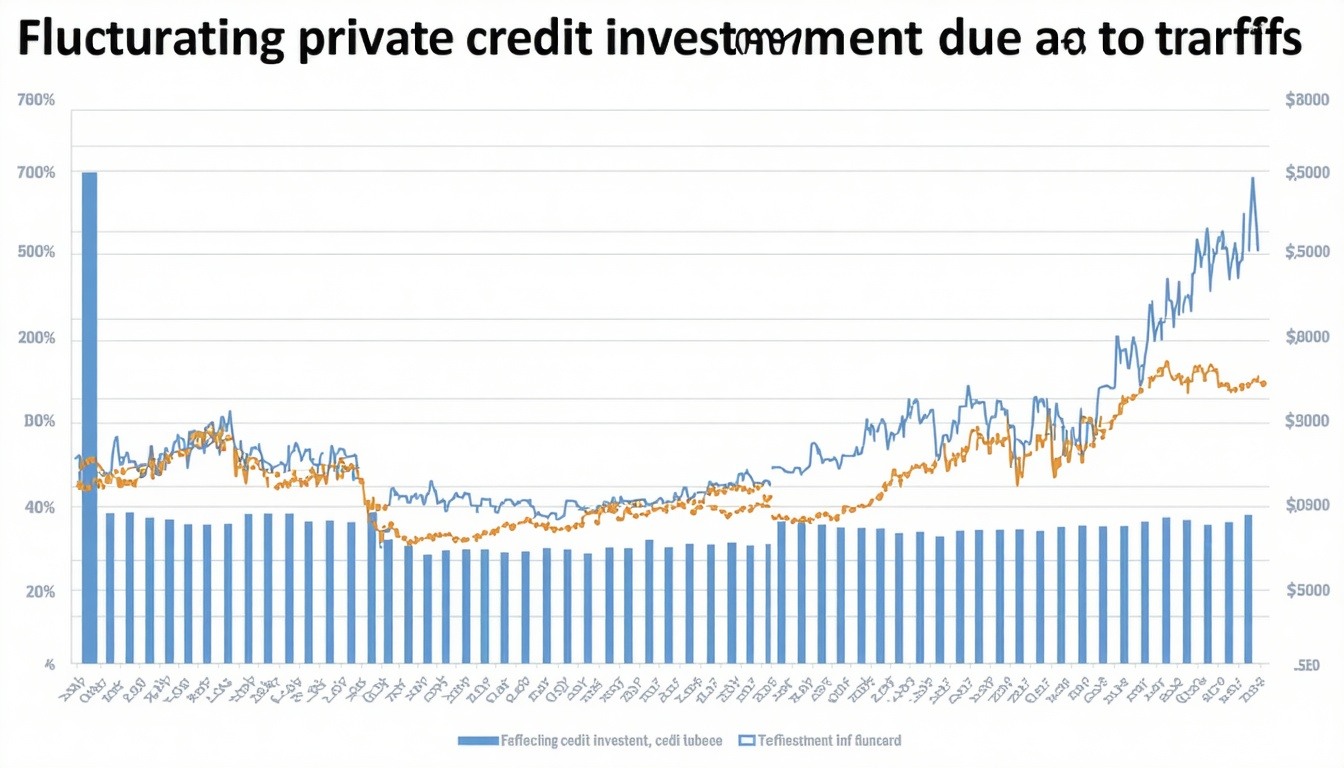How Tariffs Impact Private Credit Investments

Understanding how tariffs reshape the landscape of private credit investments is crucial for navigating the financial services industry.
The Relationship Between Tariffs and Private Credit
Tariffs, essentially taxes imposed on imported goods, can significantly influence private credit markets. When tariffs are introduced or increased, the cost of goods rises, affecting companies' profit margins and operational expenses. This chain reaction can impact their creditworthiness and ability to repay loans.
Private credit investors must closely monitor tariff policies, as these can alter the risk profiles of their portfolio companies. Understanding the intricate link between tariffs and borrower financial health is essential for making informed investment decisions.
Economic Ripple Effects of Tariffs on Borrowers
Tariffs can create economic ripple effects that extend far beyond the immediate increase in costs. Companies facing higher import costs may pass these expenses onto consumers, potentially reducing demand for their products. This reduction in demand can lead to decreased revenue and strained financials, making it more challenging for companies to meet their debt obligations.
For borrowers who rely heavily on imported goods or materials, tariffs can be particularly devastating. The increased costs can erode their margins to the point where they struggle to maintain profitability, thereby increasing the risk of default on their loans.
Risk Management in Private Credit Amid Tariff Uncertainty
Managing risk in private credit investments becomes even more critical amid tariff uncertainty. Investors need to conduct thorough due diligence to understand how exposed potential borrowers are to tariff impacts. This involves not only analyzing current financial statements but also assessing how future tariff changes might affect their business models.
Diversification is another key strategy for mitigating risk. By spreading investments across various industries and geographies, lenders can reduce the impact of tariffs that may affect specific sectors or regions more severely than others.
Opportunities and Challenges for Lenders
While tariffs present challenges, they also create opportunities for lenders. For instance, companies struggling with tariff-induced financial stress may seek alternative funding sources, opening the door for private credit investors to offer bespoke financing solutions.
However, lenders must also navigate the challenges of accurately pricing risk in an environment where tariff policies can change rapidly. Staying agile and informed about global trade dynamics is crucial for capitalizing on these opportunities while managing the associated risks.
Future Outlook: Navigating Tariffs in Private Credit Investments
Looking ahead, the landscape of private credit investments will likely continue to be influenced by global trade policies. Investors should anticipate that tariffs will remain a tool used by governments to influence trade balances and protect domestic industries.
To navigate this environment successfully, private credit investors need to stay informed about geopolitical developments and be prepared to adjust their strategies accordingly. Flexibility and a deep understanding of the markets they operate in will be key to maintaining robust portfolios in the face of ongoing tariff fluctuations.